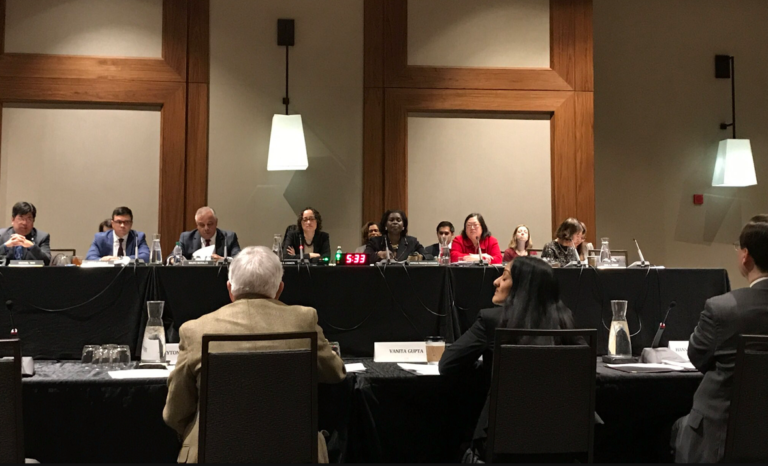
RALEIGH, N.C. (2/2/2018) — The U.S. Commission on Civil Rights hosted a public briefing on voting rights today in Raleigh, N.C., as part of its ongoing assessment of federal enforcement of the Voting Rights Act. Testimony received during today’s series of panels and public comment will inform the Commission’s 2018 report to Congress, the President, and the American public regarding the state of voting rights across the nation.
During the day-long hearing on minority voting access, the bipartisan Commissioners heard from current and former state and federal government officials, legal experts, academics, and civil society actors, which included North Carolina voting rights advocates such as President of Repairers of the Breach Rev. Dr. William J. Barber, Former Southern Coalition for Social Justice Executive Director Anita Earls, and Democracy North Carolina Executive Director Tomas Lopez.
Lopez, who provided written testimony and participated in an afternoon panel on the Shelby County vs. Holder decision on the Voting Rights Act (VRA) and the Department of Justice’s enforcement strategies and priorities, presented a North Carolina perspective on the importance of reinstating the VRA’s pre-clearance protections.
As part of his written testimony, Lopez pointed to how the gutting of the VRA meant a loss of deterrents to state-level voter suppression in North Carolina like the state’s 2013 monster voter suppression law (HB589) — proposed by lawmakers on the very same day as the Shelby County decision — and local consequences, including reduced voter access and increased voter intimidation.